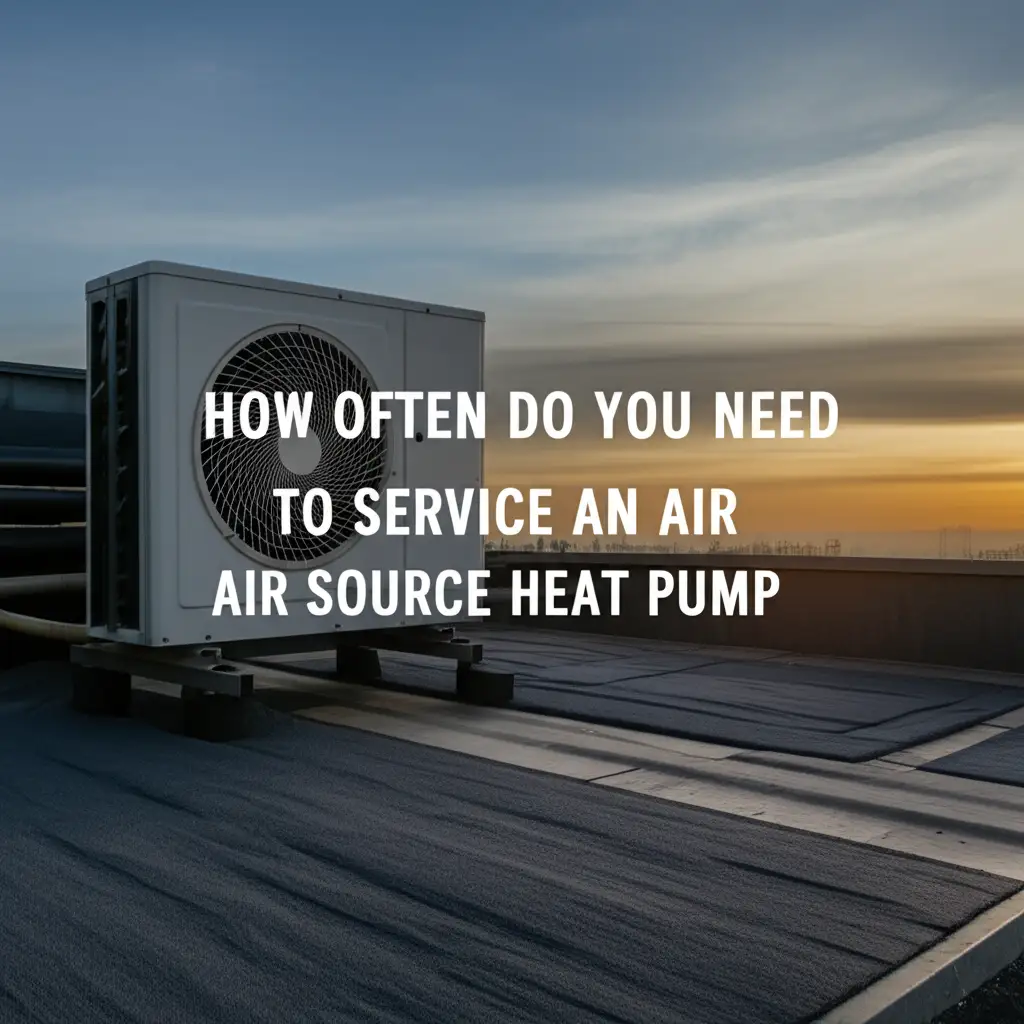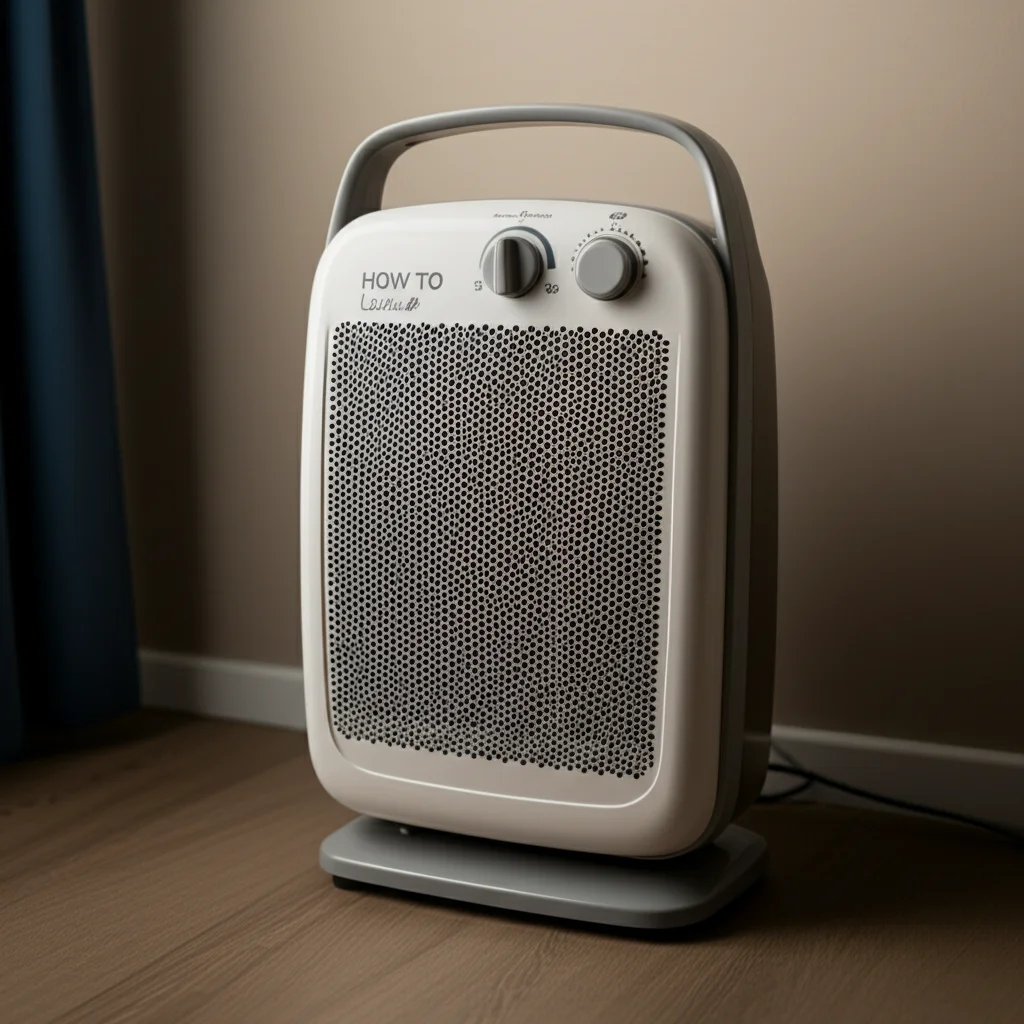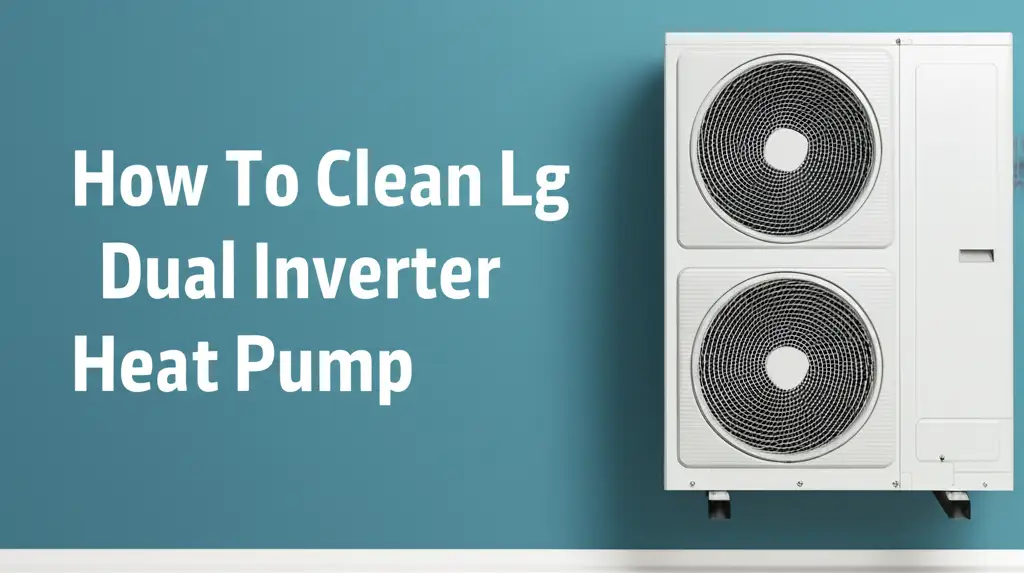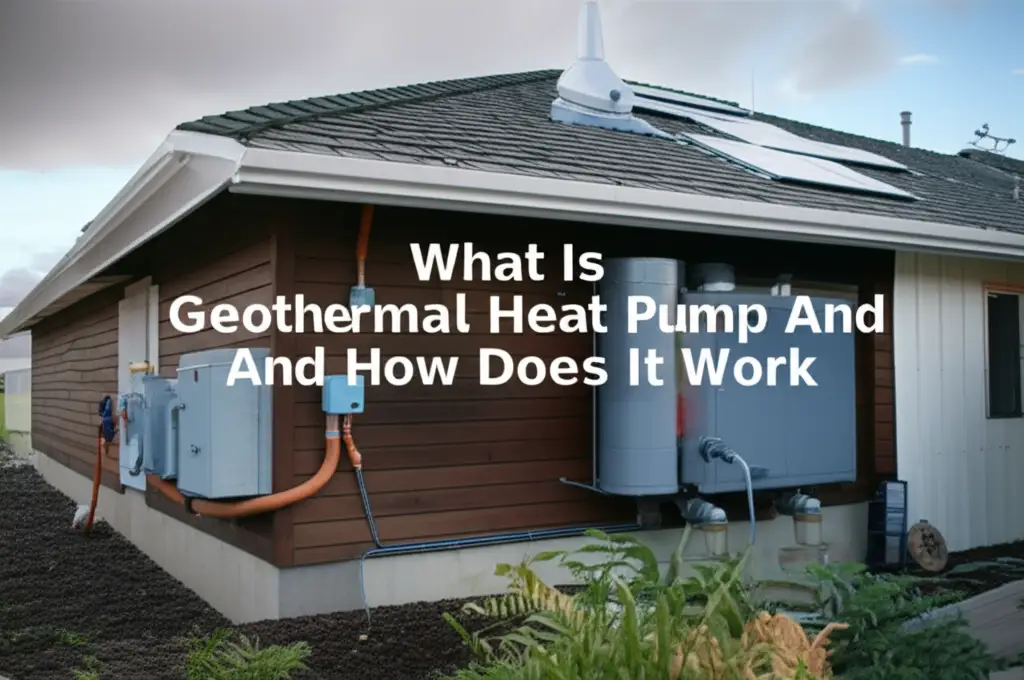· Todd Martin · Home Maintenance · 11 min read
How Often Do You Need To Service An Air Source Heat Pump

Servicing Your Air Source Heat Pump: How Often Do You Need It?
An air source heat pump is a fantastic way to heat and cool your home. It provides comfort year-round. Many homeowners wonder, “How often do you need to service an air source heat pump?” Regular maintenance is key to its performance. Proper servicing ensures your system runs efficiently, saves energy, and lasts longer. This article explains the recommended service schedule, outlines essential DIY tasks, and describes what professional service involves.
Takeaway
Regular service ensures your air source heat pump works well.
- Get professional service annually to keep your warranty valid and for peak performance.
- Perform simple DIY checks monthly or quarterly to catch small issues early.
- Factors like climate and usage affect how often your system needs checks.
- Look for signs like strange noises or higher bills; these mean faster service is needed.
- Servicing saves money on energy and avoids expensive repairs later.
Clear, Concise Answer
You need to service an air source heat pump professionally once a year. Regular DIY checks, such as cleaning filters and clearing debris, should happen monthly or quarterly. This schedule keeps your heat pump efficient, prevents breakdowns, and extends its operational life.
Understanding Air Source Heat Pump Maintenance Needs
Your air source heat pump works hard to keep your home comfortable. Like any important appliance, it needs care to perform its best. Maintenance helps your system use less energy. It also helps prevent unexpected breakdowns. Ignoring maintenance can lead to higher energy bills and costly repairs.
Knowing the difference between simple DIY tasks and professional service is important. You can handle some basic checks yourself. Other tasks require a trained technician. These professionals have special tools and knowledge. They can identify problems before they become major issues. Regular maintenance extends the life of your heat pump. It ensures your warranty remains valid.
Generally, you should have your air source heat pump serviced professionally once a year. This annual check helps catch problems early. It makes sure all components work correctly. Between professional visits, you can perform routine checks yourself. These small steps make a big difference in overall system health.
Annual Professional Air Source Heat Pump Service: A Must
Professional service is the most important part of your heat pump’s maintenance plan. A certified technician will do a thorough check of your system. This inspection covers many vital parts. They check refrigerant levels, electrical connections, and all moving components. Refrigerant levels directly impact heating and cooling ability. Incorrect levels reduce efficiency and strain the compressor.
A professional service ensures your heat pump runs at its peak. It improves energy efficiency, which lowers your utility bills. Regular professional checks can also extend your heat pump’s lifespan significantly. Many manufacturers require annual service to keep your warranty valid. This protects your investment. Technicians often clean parts you cannot easily access. For example, they will clean evaporator and condenser coils. Dirty coils make the heat pump work harder. You can learn more about how crucial this is for system health by understanding how to clean heat pump coils.
It is best to schedule this service before the heating or cooling season begins. Early fall is ideal for checking heating functions. Early spring works well for ensuring cooling is ready. This timing ensures your system performs well when you need it most. It also helps avoid rush fees during peak demand.
DIY Heat Pump Maintenance: Simple Steps You Can Take
While professional service is essential, you can do many things yourself. These DIY tasks keep your heat pump running smoothly between annual visits. Simple checks save you money and keep your system efficient. I find it helpful to set a reminder on my phone for these tasks.
First, check your air filters every month. Dirty filters restrict airflow. This makes your heat pump work harder and use more energy. Clean or replace them when they look dirty. Most manufacturers recommend changing filters every 1 to 3 months. However, homes with pets or allergies may need more frequent changes.
Second, inspect the outdoor unit regularly. Clear away any leaves, dirt, or other debris. Make sure nothing blocks the airflow around the unit. Keep plants and shrubs at least two feet away. In winter, remove snow and ice from the outdoor unit. This prevents damage and ensures proper operation.
Third, check the condensate drain line. Heat pumps produce condensation during cooling. This water drains away through a line. If this line gets clogged, water can back up and cause damage. You can flush it with a cup of distilled vinegar mixed with water. For systems with a condensate pump, you might consider how important it is to keep it clean, similar to understanding how to clean a condensate pump. These small actions stop bigger problems from starting. Keeping up with these simple steps helps your system stay healthy.
Factors Influencing Your Heat Pump Service Schedule
While annual professional service is a general rule, certain factors can change this. Understanding these influences helps you create the best service plan for your home. Your heat pump’s environment and usage play a big role.
Consider your local climate. If you live in an area with extreme temperatures, your heat pump works harder. Very hot summers or very cold winters put more strain on the system. This increased workload might mean you need more frequent checks. For example, some experts suggest two professional visits per year in harsh climates. One visit before summer and one before winter can be helpful.
How often you use your heat pump also matters. A system that runs almost constantly needs more attention than one used only occasionally. If your home has poor insulation, your heat pump might run longer cycles. This increased operation contributes to faster wear and tear. More usage means more internal component stress.
The age of your heat pump is another key factor. Older units may require more frequent inspections. Parts wear down over time. A technician can identify these worn parts before they fail. Manufacturer recommendations are also vital. Always check your heat pump’s manual. It contains specific guidelines for maintenance based on your model. Finally, environmental factors like dust, pollen, and pet dander can affect filter and coil cleanliness. Homes with more airborne particles might need more frequent filter changes and coil cleanings.
Signs Your Air Source Heat Pump Needs Service Sooner
Sometimes your heat pump will tell you it needs attention. Paying attention to these signs can prevent small issues from becoming expensive repairs. Do not ignore these warnings. Acting quickly can save you money and restore comfort.
One common sign is unusual noises. If your heat pump starts making grinding, squealing, rattling, or hissing sounds, it is a warning. These noises often point to failing motors, loose parts, or refrigerant leaks. A qualified technician can diagnose the exact cause.
Reduced heating or cooling performance is another clear indicator. If your home feels less comfortable, or the heat pump struggles to reach desired temperatures, service is needed. This can be due to low refrigerant, a clogged filter, or a failing compressor. You might notice longer run times without achieving the expected comfort.
A sudden increase in your energy bills, without a change in usage, suggests a problem. An inefficient heat pump uses more electricity to do the same job. This higher energy consumption means something is wrong. It could be dirty coils, a refrigerant leak, or a faulty component.
Frequent cycling, where the heat pump turns on and off too often, is also a concern. This “short cycling” puts stress on the compressor. It can indicate a miscalibrated thermostat, improper sizing, or a refrigerant issue. Lastly, any visible leaks, especially around the indoor unit or drain line, need immediate attention. Water leaks can damage your home and lead to mold growth.
The Benefits of Regular Air Source Heat Pump Servicing
Investing in regular air source heat pump servicing brings many advantages. It is not just about fixing problems. It is about preventing them and ensuring your home stays comfortable and efficient. These benefits truly make the effort worthwhile.
First, regular servicing leads to improved energy efficiency. When your heat pump runs cleanly and correctly, it uses less electricity. Components like clean coils and proper refrigerant levels mean the system does not work overtime. This translates directly into lower monthly energy bills. For instance, a clean heat exchanger ensures efficient heat transfer, impacting overall system performance significantly, much like understanding how to clean a heat exchanger helps maintain its effectiveness.
Second, it extends the equipment’s lifespan. A well-maintained heat pump lasts longer. Parts that receive regular checks and lubrication avoid premature wear. This delays the need for an expensive replacement unit. Think of it like changing the oil in your car; it keeps the engine running longer.
Third, you get enhanced comfort and reliability. A serviced heat pump provides consistent heating and cooling. It works reliably when you need it most. You avoid uncomfortable temperature swings or sudden system failures. This reliability gives you peace of mind.
Fourth, regular servicing prevents costly breakdowns. Small issues caught early are cheaper to fix. A professional can spot a loose wire or a minor refrigerant leak before it causes major component failure. This proactive approach saves you from emergency repair costs. Finally, it helps maintain your warranty validity. Many manufacturers will not honor a warranty claim if the system lacks a documented service history. Protect your investment by keeping up with maintenance. It is a smart choice for your home and your wallet.
What to Expect During a Heat Pump Service Appointment
Knowing what happens during a professional air source heat pump service can help you prepare. It also helps you understand the value of the service. A typical appointment involves a series of inspections and maintenance tasks. The technician aims to optimize your system’s performance.
The service usually starts with a general inspection. The technician checks the outdoor and indoor units for any obvious damage or blockages. They will test the thermostat to ensure it reads temperatures correctly. Proper thermostat function is crucial for efficient operation.
Next, the technician inspects vital components. This includes the compressor, which is the heart of your heat pump. They check the fan motors for proper operation and lubrication. Coils are inspected for dirt and damage; cleaning is done if necessary. Ducts are checked for leaks, which can waste a lot of energy. Any loose electrical connections are tightened.
Refrigerant levels are a key focus. The technician verifies the correct amount of refrigerant is in the system. They check for leaks. Low refrigerant severely impacts efficiency and can damage the compressor. Amperage and voltage of electrical components are also measured to ensure they operate within safe limits.
Finally, the technician performs performance testing. This includes measuring airflow, temperature differences across the coils, and system pressures. They ensure the heat pump operates efficiently in both heating and cooling modes. They will also provide a report of their findings. This report often includes recommendations for any necessary repairs or future maintenance. Feel free to ask questions about anything unclear.
FAQ Section
Q1: Is annual heat pump service necessary? A1: Yes, annual heat pump service is highly necessary. It ensures your system operates at peak efficiency, which lowers energy bills. Regular professional checks also help extend the lifespan of your unit. Many warranties require documented annual servicing to remain valid.
Q2: Can I service my heat pump myself? A2: You can perform basic maintenance tasks like cleaning or replacing air filters, clearing debris from the outdoor unit, and flushing the condensate drain. However, complex tasks like checking refrigerant levels, electrical components, or internal diagnostics require a trained professional.
Q3: What happens if I don’t service my heat pump? A3: Ignoring heat pump service leads to several problems. Your system will become less efficient, increasing energy costs. It will likely experience more frequent breakdowns, leading to expensive repairs. The lifespan of the unit will shorten, and your warranty might become void.
Q4: How long does a heat pump service take? A4: A professional air source heat pump service typically takes between one to two hours. The exact time depends on the system’s condition and the thoroughness of the inspection. Technicians often spend extra time on older or less maintained units.
Q5: What is the average cost of heat pump service? A5: The average cost for a professional heat pump service varies. It usually ranges from $100 to $300. This cost can depend on your location, the specific technician or company, and any additional repairs needed. It is a small investment compared to potential repair costs.
Conclusion
Keeping your air source heat pump in top condition is a smart investment. You now understand how often you need to service an air source heat pump. Regular professional maintenance, combined with your own simple DIY checks, ensures system health. This proactive approach saves you money on energy bills and prevents costly breakdowns. It also extends the life of your heat pump, ensuring comfortable temperatures for years.
Do not wait until a problem arises. Schedule your annual professional heat pump service today. Consult your owner’s manual for specific maintenance recommendations. A well-maintained heat pump provides reliable comfort and efficient operation for your home. Prioritize this crucial home essential.
- air source heat pump
- heat pump maintenance
- ASHP servicing
- home heating
- energy efficiency





